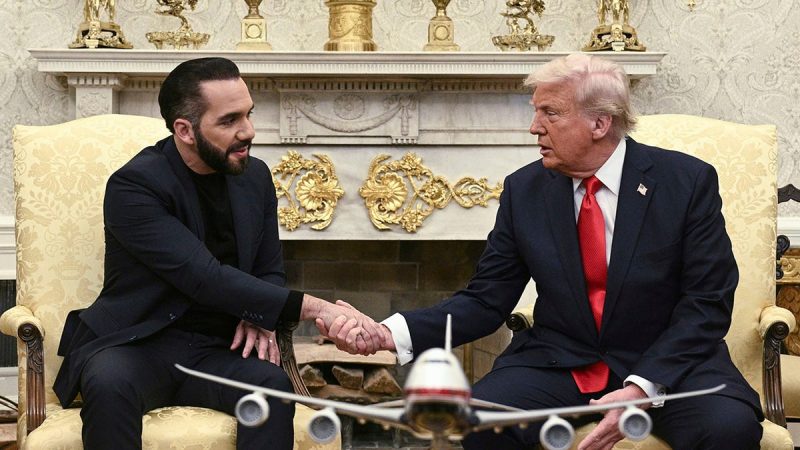Unprecedented Aid: Senate Delivers $95 Billion Support to Ukraine and Israel Amid Political Divide
 The United States Senate recently passed a $95 billion aid package for Ukraine and Israel, unveiling a deep rift within the Republican party. This divide highlights the complexities of American foreign policy and the internal struggles faced by politicians when it comes to allocating foreign aid.
The aid package, which was initially proposed by President Joe Biden, aims to support Ukraine in its ongoing conflict with Russia and strengthen the relationship between the United States and Israel. However, it has faced vehement opposition from certain factions within the Republican party, exposing a divide that has been growing over the years.
On one side of the debate are Republicans who view the aid package as an essential component of American foreign policy. They argue that providing assistance to Ukraine not only upholds international norms but also serves to protect the interests of the United States and its allies. Furthermore, they contend that assisting Ukraine in its struggle against Russian aggression is a necessary measure to maintain stability in the region.
These Republicans also emphasize the importance of supporting Israel, highlighting the strong historic and strategic alliance between the two countries. They view aid to Israel as an investment in stability and security in the Middle East, and as a way to demonstrate America's unwavering commitment to its allies.
On the other side of the debate are Republicans who question the efficacy and necessity of providing such a substantial aid package. They argue that the United States should prioritize its domestic needs over extending assistance to foreign nations. These Republicans contend that the money allocated for Ukraine and Israel would be better spent on infrastructure, education, or healthcare within the United States.
Furthermore, some Republicans express concerns about the potential misuse of the aid and argue that the money could end up in the wrong hands or fail to achieve its intended goals. They worry about the levels of corruption in Ukraine and question the ability of the government to effectively utilize the aid in a transparent and accountable manner.
It is important to note that this divide is not solely limited to Republicans. Across the aisle, Democrats also hold differing opinions on the issue, albeit to a lesser extent. However, the partisan tension within the Republican party regarding foreign aid reflects broader debates within American politics regarding the country's role in the world and the allocation of its resources.
As the world becomes increasingly interconnected, foreign aid has become a contentious issue. The challenges faced by politicians in striking the right balance between international obligations and domestic priorities are significant. The divide within the Republican party over the $95 billion aid package for Ukraine and Israel underscores the complexities involved in crafting foreign policy decisions.
Ultimately, the passage of the aid package signifies the United States' continued commitment to its allies and its belief in the importance of supporting those in need. However, the internal divisions within the Republican party shed light on the challenges faced by politicians in navigating the delicate landscape of foreign aid. As the world continues to change, it is important for policymakers to engage in informed and constructive debates, seeking to find common ground while addressing the diverse needs of both domestic and international communities.
The United States Senate recently passed a $95 billion aid package for Ukraine and Israel, unveiling a deep rift within the Republican party. This divide highlights the complexities of American foreign policy and the internal struggles faced by politicians when it comes to allocating foreign aid.
The aid package, which was initially proposed by President Joe Biden, aims to support Ukraine in its ongoing conflict with Russia and strengthen the relationship between the United States and Israel. However, it has faced vehement opposition from certain factions within the Republican party, exposing a divide that has been growing over the years.
On one side of the debate are Republicans who view the aid package as an essential component of American foreign policy. They argue that providing assistance to Ukraine not only upholds international norms but also serves to protect the interests of the United States and its allies. Furthermore, they contend that assisting Ukraine in its struggle against Russian aggression is a necessary measure to maintain stability in the region.
These Republicans also emphasize the importance of supporting Israel, highlighting the strong historic and strategic alliance between the two countries. They view aid to Israel as an investment in stability and security in the Middle East, and as a way to demonstrate America's unwavering commitment to its allies.
On the other side of the debate are Republicans who question the efficacy and necessity of providing such a substantial aid package. They argue that the United States should prioritize its domestic needs over extending assistance to foreign nations. These Republicans contend that the money allocated for Ukraine and Israel would be better spent on infrastructure, education, or healthcare within the United States.
Furthermore, some Republicans express concerns about the potential misuse of the aid and argue that the money could end up in the wrong hands or fail to achieve its intended goals. They worry about the levels of corruption in Ukraine and question the ability of the government to effectively utilize the aid in a transparent and accountable manner.
It is important to note that this divide is not solely limited to Republicans. Across the aisle, Democrats also hold differing opinions on the issue, albeit to a lesser extent. However, the partisan tension within the Republican party regarding foreign aid reflects broader debates within American politics regarding the country's role in the world and the allocation of its resources.
As the world becomes increasingly interconnected, foreign aid has become a contentious issue. The challenges faced by politicians in striking the right balance between international obligations and domestic priorities are significant. The divide within the Republican party over the $95 billion aid package for Ukraine and Israel underscores the complexities involved in crafting foreign policy decisions.
Ultimately, the passage of the aid package signifies the United States' continued commitment to its allies and its belief in the importance of supporting those in need. However, the internal divisions within the Republican party shed light on the challenges faced by politicians in navigating the delicate landscape of foreign aid. As the world continues to change, it is important for policymakers to engage in informed and constructive debates, seeking to find common ground while addressing the diverse needs of both domestic and international communities.
If you would like to delve into the world of investment topics , go to our partner project Wall Street Wizardry


